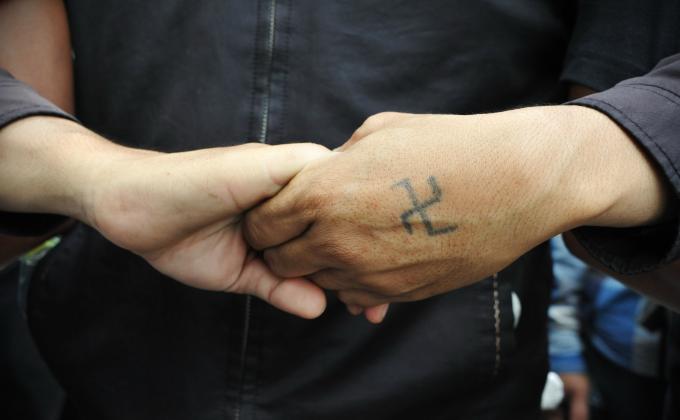Date: Monday 10 September 2012, 18:00 - 20:00.
Venue: Koninklijke Schouwburg Den Haag (Korte Voorhout 3, 2511 CW Den Haag)

On Monday 10 October, ICCT and publisher the House of Books hosted US author and CNN National Security Analyst Peter L. Bergen to launch the Dutch translation of his best-selling book “Manhunt: The Ten-Year Search for Bin Laden – from 9/11 to Abbottabad” (De Jacht op Bin Laden). The book meticulously traces “the most intensive and expansive manhunt of all time” for Osama bin Laden culminating in his execution on 2 May 2011. He provides an in depth description of the hunt and raises many new details with a particularly comprehensive account of President Obama’s decision to launch the now infamous raid on bin Laden’s compound in Abbotabad. Bergen had unprecedented access to top Washington sources and the resulting book includes little known facts and provides an almost fly-on-the-wall account of the hunt which lasted over ten years.
At the seminar Bergen spoke about his first meeting with bin Laden in 1998. He recounted the strict security measures al Qaeda employed to disguise the location: by blindfolding Bergen and his colleagues and checking them for weapons. In this interview bin Laden declared his intention to attack the US and Bergen particularly noticed the hatred with which bin Laden spoke about America. He also spoke of the process of writing the book and visiting the Abbotabad compound where bin Laden was eventually killed. Bergen is still one of the only few Westerners to have visited bin Laden’s Abbottabad house before it was razed by the Pakistani army.
During the discussion Bergen described the aftermath of the raid. The US never informed the Pakistani Government of their plans and, as a result, the already strained relations between the two countries deteriorated even further. In Pakistan itself there was outrage and embarrassment. In the US however, Bergen noted that the Obama administration had prepared for all eventualities: for casualties on the ground, for a botched raid or for bin Laden not actually being inside the compound. Interestingly enough, noted Bergen, they had not prepared for outright success – which is what came to pass.
In terms of bin Laden’s image – which he guarded so carefully – Bergen admitted that the US may have succeeded in denting the myth of Osama bin Laden, but ultimately bin Laden let himself down: as opposed to undertaking one heroic last stand against the Navy SEALS, bin Laden put up very little resistance and was killed within minutes of their entering the compound. In terms of what is left of al Qaeda or associate terrorist organisations, Bergen argues that Osama bin Laden was already increasingly irrelevant during his time in the compound and even more so in death. Furthermore, with al Qaeda now decapitated and it’s absence during the ‘Arab Spring’, Bergen argues that it’s operational and inspirational role has also diminished, if not, already in its end game. He commented that the US government had been slow in understanding and responding to these facts and concluded that although, in essence, the Global War on Terror is over it is politically difficult for the US and its allies to admit this.



